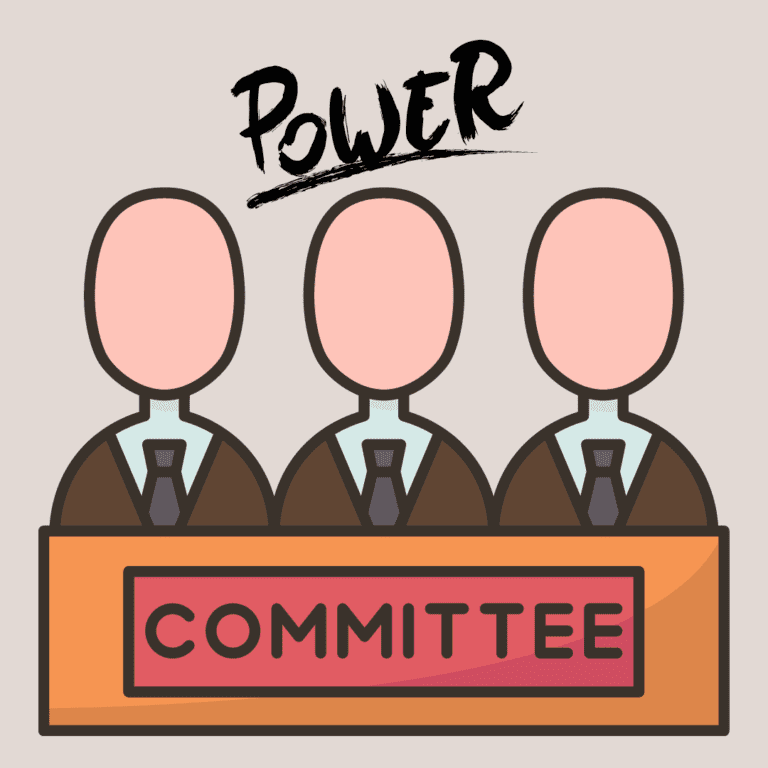Elected officials aren’t the only power brokers in small towns.
Having been what someone once called a “professional volunteer” throughout my life, I know how important volunteers are. I was a volunteer coach, a volunteer state, regional and national chairman for a sports organization, and a volunteer for other projects. If you think about it, most of what happens in our country would not happen without volunteers.
So, when I started to look into volunteers in some of our local communities, I looked beyond charitable organizations and instead looked at what I call “government volunteers.” In other words, these are people who help in quasi-official government committees and commissions. Many are sworn in to office by local officials.
One side effect of having all these volunteer committees who are created through appointments is what I call the “patronage affect.” Patronage began during the feudal period of Europe and continued after. It was a system that is defined below:
Patronage was a system of personal ties and networks in which a patron or superior offered protection and support to an inferior or client, who owed him loyalty and service in return. Patron-client ties were voluntary, emotional bonds of loyalty between unequals who were linked vertically in mutual-assistance relationships. (Patronage | Encyclopedia.com)
Sometimes these patronages were monetary or land ownership.
It may seem strange that appointments of volunteers to committees in small towns could be seen as “patronage,” but in many places it works just that way. Let’s say your town has a committee that you really want to be on. Maybe the committee relates to an interest of yours or even an interest of your spouse or friend. Maybe the committee could impact what happens in your neighborhood. You cozy up to a town official, profess your support and loyalty, and all of a sudden you get a place on that committee. You may even be named the chairman or head of the committee.
Or let’s suppose a government official perceives that you may be someone who could further their political or civic agenda. They approach you and bestow the “honor” of being on this committee which you happily accept. What a compliment.
There’s a catch. From now on, you have to support that town official. If he/she is elected, you need to help him/her get re-elected. If he/she is an employee, you need to sing his/her praises wherever and to whoever you can. It’s how some town governments assure that no one questions their actions. What better voice to defend government than using someone who is a volunteer in that government? That volunteer can wear the proud badge of service to the town when THEY are questioned.
In return you get an expedited permit, a code exemption, or some special favor from town government.
Chosen “volunteers” may also be used to attack citizens who ask questions. That happened recently in our town when the chairman of a standing, important committee attacked specific citizens in a nasty, unethical email. He lied, defamed and slandered people, and even claimed to know and be willing to share confidential information about individuals which might have been shared with him by town officials. The information was NOT true, but that didn’t matter to him. Many citizens got a copy of this email. We wonder if this person could be fair and unbiased in his important committee decisions.
Some committees are more powerful than others. Certainly, ethics committees, zoning committees, election boards and others decide whether the actions of citizens, businesses or officials fall within in town ordinances or if people get elected. They are the most powerful and the most desirable. They could cost people thousands of dollars by making them jump through the hoops they create for building and/or home improvement or they could hinder businesses they don’t like, while giving special favors to those they do.
Some may think that we are belittling the importance of these committees and commissions. Far from the truth. These groups are important in small towns, which is why we need to make sure that their selection, qualifications, terms of service, and responsibilities are CLEARLY defined and above board. We need to know they are NOT being used for political favor or to protect errant town officials who may bend or break the rules.
Committees provide the GUIDERAILS for town administrations and governments and are a chance for citizens to participate in government with some authority. They are a system of checks and balances that operates without bias toward anyone. Members need to change periodically, and terms need to be limited.
Unfortunately, small-town officials often see them as a prize to loyal subjects and a method to mete out favors in order to create a power base that other citizens may not be able to break through. Members of committees see these appointments as a springboard to run for office. It also appears that certain committee members like the one who wrote the email have lifetime appointments, sort of like the Supreme Court.
In most towns, members of the committees are sworn in and they become public officials who are bound by their oath. They state that they will support the Constitution of the United States, their State, etc. and that they will be fair and unbiased.
So, how DO people get on these committees?
Most of them have to self-nominate. Others have to be nominated by other citizens. Many times, the administration of the town picks their names out of those who either have a particular skill connected to that committee OR who has proven themselves to be in agreement with the town. In our town, the process is very vague. Applicants often don’t get information for MONTHS after they submit their names. Of course, this depends on who the applicant is and whether the town/commissioners approve of them.
There are towns which are more transparent about the selection process, qualifications, and terms of committee members in their towns. You can judge that from their websites:
St. Michaels, Maryland:
Here is information from the website for St. Michaels, Maryland regarding committees in their town:
Town of St. Michaels | Ethics Commission (stmichaelsmd.gov)
Town of St. Michaels | Historic District Commission (stmichaelsmd.gov)
Town of St. Michaels | Parks and Recreation Advisory Board (stmichaelsmd.gov)
Town of St. Michaels | Board of Zoning Appeals (stmichaelsmd.gov)
They also have a document about their volunteer committees:
POSITION-DESCRIPTIONS-BOARDS-AND-COMMISSIONS-11.13.19.doc.pdf (stmichaelsmd.gov)
Here is information from Rock Hall, Maryland:
Committees | Rock Hall Maryland (rockhallmd.com)
You can go to each committee found on the drop-down menu and see that committee. Rock Hall has some committees that are hybrids of volunteers, elected officials, and paid staff.
Berlin, Maryland:
Boards, Commissions and Committees – Town of Berlin (berlinmd.gov)
Berlin also does a nice drop-down menu with the names of committee members and even publishes info from their meetings.
Oxford, Maryland:
On this website you have to go to two different spots on the website to find who is on committees and their terms and minutes from meetings. Some committee members do not have terms listed. You also have to go to the Oxford Code for descriptions of the committees etc.
Commissions/Boards/Departments | Town Of Oxford, Maryland (oxfordmd.net)
You can find the description of three of the Committees/Boards and length of term for two of them:
Port of Wardens, Parks and Rec Committees have length of term listed. Ethics Commitee has no length of term listed.
It’s interesting that the Ethics Committee, a committee that can decide ethics issues for other committees/town officials and employees, has little information about their length of term, appointments, qualifications, etc.
Minutes for some committees’ meetings are here:
Oxford Commission and Board Agendas | Town Of Oxford, Maryland (oxfordmd.net)
Either by laziness, incompetence, or outright unfairness, Oxford provides very little information about some of the standing committees in the town. Yes, you can fill out an application and send it in, but you will only get a curt reply that your application was received. ( And that is only if you ask for confirmation of receipt.) You will not be given information about what will happen with your application, what preparation you should complete, etc. It’s almost like they don’t want CERTAIN citizens considered. It seems to be a modern-day patronage system. You scratch their backs; they will take care of you.
It’s time for that to end.
In your small town, do your homework. What are the committees in your town? What are their duties? How do you get on one? How long do people stay on them? What are the qualifications? Do you need any training? Is there an interview process?
It’s time for more people to have access and opportunity to serve.
The Tyranny Of The Closed Public Meeting
Fear of Transparency: House Of Cards Collapsing In Oxford
Author Jan Greenhawk is a former teacher and school administrator for over thirty years. She has two grown children and lives with her husband in Maryland. She also spent over twenty-five years coaching/judging gymnastics and coaching women’s softball.
This article was originally featured at the Easton Gazette.

